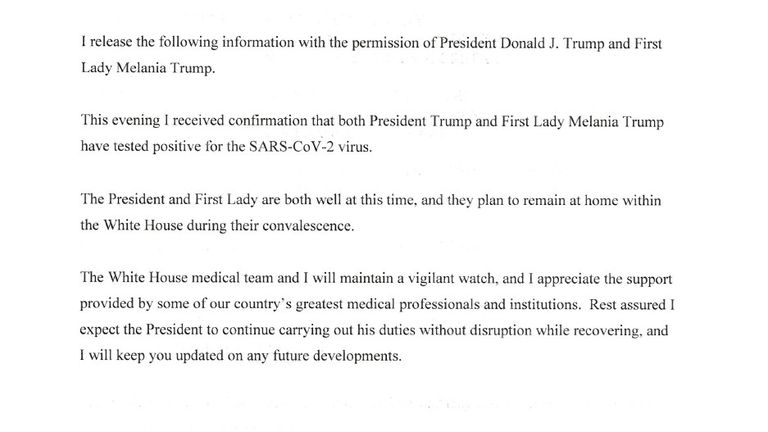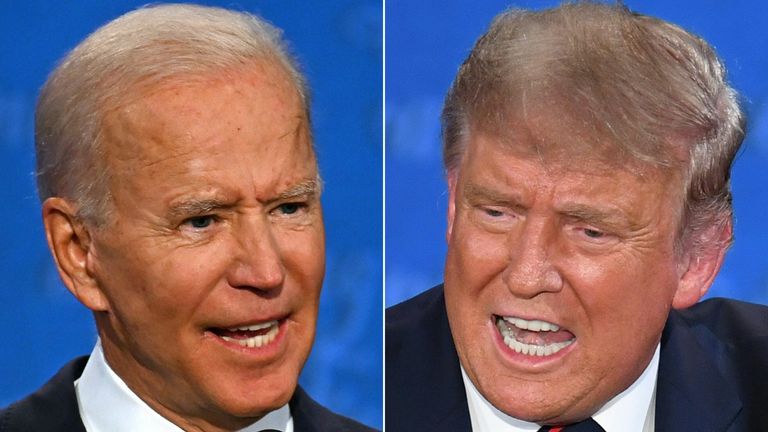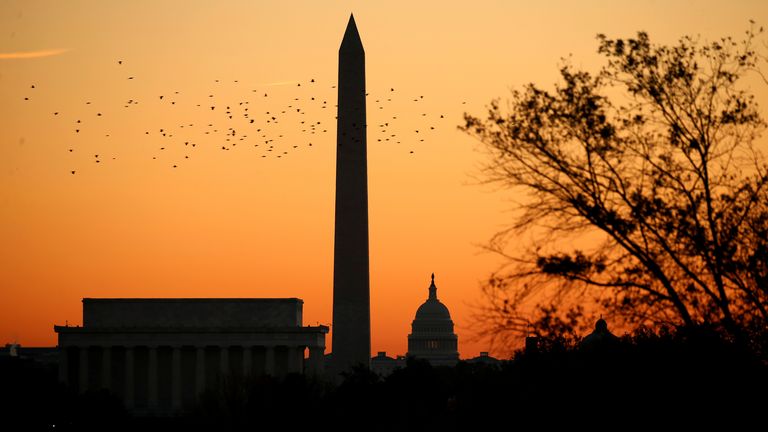Donald Trump has tested positive for COVID-19, just a month from the US election on 3 November.
Mr Trump and his wife Melania will now quarantine for two weeks while undergoing treatment for the coronavirus, something which will impact the remaining presidential debates.
Being 74-years-old and – according to his health records published in June – categorised as obese, Mr Trump is at a higher risk of serious complications from COVID-19.
If he were to become incapacitated or die as a result of the infection – or if such a fate were to befall Democratic candidate Joe Biden – it would have significant and unprecedented ramifications for the US electoral process.
Latest coronavirus updates from UK and around the world
Despite being unprecedented, there are established processes for the selection of new presidential candidates, and these would take centre stage.
According to the rules of the Republican National Committee (RNC), a vacancy for the candidacy in the case of death would be filled in the same manner that a presidential candidate is selected during the national convention.
The 168 members of the RNC – three from every US state, and three from the six territories of the District of Columbia, American Samoa, Guam, the Northern Mariana Islands, Puerto Rico, and the US Virgin Islands – would cast their votes and the candidate would be elected by a majority.
It is a requirement for the RNC to re-elect their new presidential candidate and so it would not automatically fall to the current vice president Mike Pence, although he would constitutionally be required to fill the role of president in the interim period.
The Democratic National Committee (DNC) has similar rules – its 447 members would choose the new candidate after the DNC chair consulted with the party’s leaders in Congress and with its state governors.
Typically this candidate’s name would then be placed on the ballot papers and the election would continue as normal, however this is deeply challenging considering the vacancy may occur so close to the big day on 3 November.
Indeed, not only have the ballots already been printed – replacing them is not an insurmountable challenge – but millions of US voters have already filed their ballots using the postal system due to the pandemic.
In addition to that, states each have different deadlines for when the parties can submit different candidate names to be included on the ballot papers – deadlines which are likely to have already passed in the majority of states.
Electoral college members might be expected by the electorate to count votes for a deceased candidate as a vote for their replacement, but it is not clear that this would definitely be in line with voters’ wishes – potentially leading to disputes and court actions.
:: Subscribe to Divided States on Apple Podcasts, Google Podcasts, Spotify, Spreaker
It is also possible that Congress could delay the election, although this has never happened in US history.
When Mr Trump suggested doing so due to the pandemic back in July, citing a discredited theory that postal voting could be compromised by fraud, his comments were shot down by both Democrats and Republicans.



